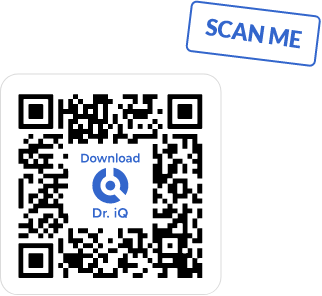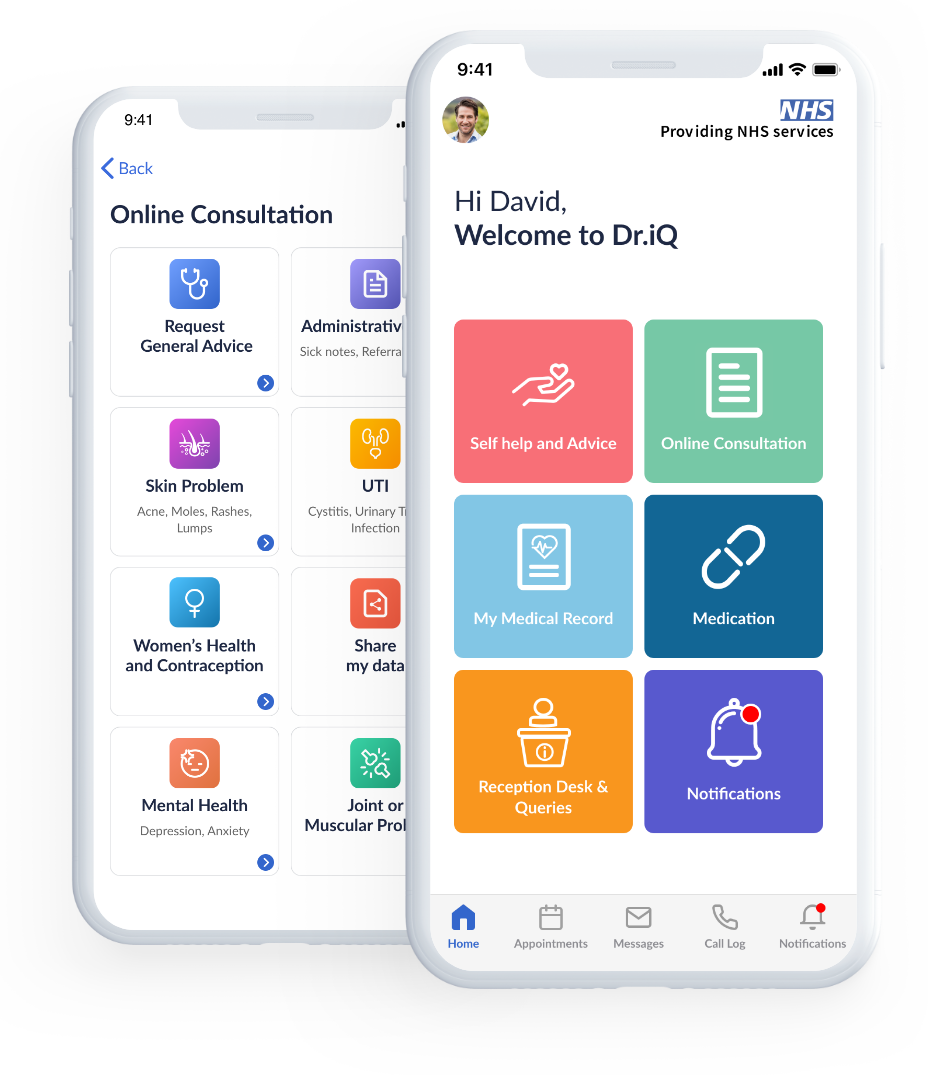We have 18 GP practices in South Southwark, (Improving Health Limited) PCN, they are:
All practices in south Southwark have signed up to being a large PCN, with the support of Improving Health Limited (IHL), in set up and implementation. IHL is a GP federation and was established in 2014 to give patients equitable access to a wide range of services and to ensure the same high-quality services no matter where they live or which GP practice they use. The south Southwark PCN is underpinned by four neighbourhoods, each led by a PCN clinical director:
-
Camberwell – Dr Roger Durston
-
Peckham – Dr Kishor Vasant
-
Dulwich and Nunhead – Brenda Donnelly (practice nurse)
-
Dulwich – Dr Gavin McColl
If you have any Freedom of Information requests, please contact us.
Covid-19 Support and Management
Resources for Practices
Seeing patients with suspected Covid-19 in General Practice: lessons learned and important considerations
We have developed guidance for practices to support them in managing patients with suspected Covid-19. This document has been created to try to impart some of the knowledge and insight gained by clinical and management leads involved in establishing and working at the Southwark Community Covid19 Management Service (CCMS) which operated from April to June.
We have included a brief list of useful resources at the end of the document and referenced where relevant throughout. And below are additional documents and links.
We hope you will find this useful for practices and would welcome any feedback
Content used is property of Improving Health Limited – South Southwark PCN
Local Extended Access Service
What is the Extended Primary Care Service (EPCS)?
The Extended Primary Care Service (EPCS) provides patients in south Southwark with additional GP and nurse appointments. This means that there is primary care available from 8 – 8, seven days a week. On any given day, these appointments help a GP practice to manage their capacity and provide care for their patients even if their own appointments are fully booked.
The service is available to south Southwark patients who:
-
require urgent same or next day urgent care in general practice and have been telephone assessed by a GP or trained senior nurse in their own practice.
-
can be managed by a GP or primary care nurse in the community (and do not need to go to hospital)
-
routine appointments are also available and can be requested via your own GP surgery
Can I ask for an EPCS appointment?
If you are unable to get an immediate appointment at your GP practice, an EPCS appointment should be offered to you. If this is not offered, please ask the receptionist..
How will the doctor at the EPCS know about my health history?
Doctors and nurses at the EPCS can access a patient’s full medical records (with the patient’s consent) to be able to offer the right care and treatment.
What happens if a patient’s health condition needs more detailed attention?
When making an assessment, a doctor or nurse at the EPCS may decide that a patient may be better seen in their own practice. This is more likely when the patient has complex needs.
Patients who may need further routine investigation or another referral may be asked to contact their own practice to make these arrangements.
The EPCS has been funded by NHS Southwark Clinical Commissioning Group (CCG). IHL was awarded the EPCS contract for south Southwark in 2015.
Find out more about who runs the EPCS.
Contact details
Tessa Jowell Health Centre
East Dulwich
London,
SE22 8EY
For appointment cancellations, amendments and general information please phone 020 8194 7570. Please note this number is not for bookings, bookings are done via your GP practice or via NHS 111 if your practice is closed.
Social Prescribing Service
Many things can affect our health and wellbeing; such as loneliness, stress or money problems. Sometimes it could be the stress of managing different long-term conditions.
Social Prescribing can help. It starts with a conversation, perhaps with a GP or nurse, or another staff member in the GP Practice. They can refer you to a member of our team. We are called Social Prescribing Link Workers.
Social Prescribers are here to listen to you, to put you in touch with the people, organisations and activities that aim to help you to feel better. The service is free and confidential.
Our Social Prescribers may introduce you to a community group, a new activity or a local club. They might help you find legal advice or debt counselling. They might help you find information and guidance on your situation or what local resources there are in your area.
A Social Prescriber could even support you to join something new such as a gardening club, a yoga class, a social meet up for men, or a knit and natter group.
Social prescribing can help individuals to have more control over their own health and find ways to improve how they feel in a way that suits them. It is part of the NHS Long-Term Plan for Personalised Care.
Studies show that people get better and feel better faster than those treated with medicine alone. Our Service covers Surgeries located in the South Southwark (London) Network. Referrals are made via your GP surgery. We currently cannot accept self-referrals.
Are you a local community group interested in connecting with our service? Please email us on ih.socialprescribers@nhs.net
Our Social Prescribing Team
We are a team of 9 generalist Social Prescribers and two Back on Track Financial Advisors. We are each situated in GP surgeries in the South Southwark Primary Care Network.
Content used is property of Improving Health Limited – South Southwark PCN.
Community Dermatology
Overview of community dermatology
This service is a collaboration between IHL, Guy’s and St Thomas’ Foundation Trust (GSTT) and King’s College Hospital Foundation Trust (KCH). It involves dermatologists, GPs with Extended Roles (GPSwERs) in dermatology and local GPs working together to deliver improved access to dermatology management advice, community clinic assessment and secondary care management where needed.
The service is consultant led, includes six GPwERs and is based at two community clinic sites (Guy’s Hospital and Elm Lodge). The clinics work closely in partnership with local secondary care (GSTT and KCH).
What is the purpose of this service?
-
To ensure that patients receive appropriate help to manage their dermatology problems within a clinically appropriate time frame.
-
To support GPs to manage their patients as effectively as possible in primary care.
-
To ensure that patients are seen in the right place, first time by identifying where a patient would best be assessed.
-
To increase GP confidence in diagnosing skin lesions that should be seen via the two week wait clinics.
-
To increase primary care dermatology knowledge and practical dermatology management.
-
To encourage prescribing in line with local guidelines.
What have we done so far?
-
We have collaborated with our partners to deliver better integrated care with local secondary and tertiary dermatology services.
-
We have established both clinics within EMIS (GP computer system), integrating access to pathology and prescribing services and allowing us, with consent from patients, to access patients GP records and the Local Care Record to enhance patient care.
-
Patients can be seen at one of the clinics Monday to Friday – with daily clinics at Elm Lodge Surgery and twice weekly (Mondays and Wednesdays) at Guy’s Hospital. We currently deliver 14 clinics per week. Consultant clinics are offered weekly at Guy’s Hospital and monthly at Elm lodge
-
We have recruited three new GPwERS and supported KCH in recruiting two GPwERs to their two weeks wait service.
-
We have reduced the waiting time for patients to receive assessment and advice.
-
We have increased access to dermatology education. GPs, Advanced Nurse Practitioners (ANPs) and pharmacists have attended local clinical education sessions and community dermatology sessions.
What difference has this made?
-
There have been 2,100 new patients that have been seen in our community clinics in the first 12 months.
-
We have triaged 3,468 referrals in first 12 months ensuring patients are seen in the right place, first time.
-
Patients are surveyed monthly and are overwhelmingly positive about the service and quality of care that they have received.
What are our plans for the future?
The model is being extended to other local CCGs (another community consultant has been appointed for Lambeth with its own community clinic and GPwERS to follow). We also aim to improve access to and use of local dermatology guidelines.
Content used is property of Improving Health Limited – South Southwark PCN.
Neighbourhood Delivery
Overview of neighbourhood delivery
Our GP practices are divided into four geographical areas called neighbourhoods. Our neighbourhoods are: Peckham, Camberwell, Dulwich and Nunhead Villages and Dulwich.
Why are we working in neighbourhoods?
Working in neighbourhoods ensures a focus on the local needs and priorities of our member practices and their local patients. It means local connections and relationships can be established across GP practices and other health and care partners including GSTT, SLAM and the voluntary and community sector.
What have we done so far?
-
We have a team working at IHL that support neighbourhood delivery.
-
We currently hold monthly meetings in each neighbourhood.
-
This year, we received funding from GSTT Charity to run a pilot project in our Dulwich and Peckham neighbourhoods to support patients with COPD.
What difference has this made?
A COPD case study
Working in our neighbourhoods, we brought people from different services together to consider what some of the key issues were for our local residents and identify some areas we may be able to work on together. We had leads from general practice, mental health services, social care, the voluntary and community sector. We agreed to focus on people with COPD who particularly suffered from breathlessness, anxiety and depression.
What we did
-
We agreed to focus on two GP practices initially and test a clinical and a non-clinical co-ordinator.
-
We identified patients and asked clinicians to review these to consider people suitable for this small test and developed patient communications.
-
We recruited a pharmacist and non-clicnical link worker from a local voluntary and community organisation and arranged appropriate training for them.
-
We developed a suitable assessment and care plan for patients (ensuring appropriate patient consent/data sharing agreements were in place).
-
Support was provided to patients over three months.
What we learnt
-
Patients really benefitted from this support. The nature of need varied, but social isolation and living alone were significant factors. Co-ordinators liaised with a lot with other services to resolve issues for patients and found that a joint approach with a clinical and non-clincal role could be very effective.
-
Highlighted importance of knowing what services were available in the local area. The good working relationship between the pharmacist and the non-clinical link worker was really helpful in improving and sharing knowledge of local services.
-
The team of local health professionals and leads from social care and the voluntary sector that took part found it both useful and energising to work together, build relationships and understand each other’s’ role.
Content used is property of Improving Health Limited – South Southwark PCN
Click the link below to find out more about your local PCN: https://www.ihlsouthwark.co.uk/what-we-do/our-primary-care-network-pcn/








